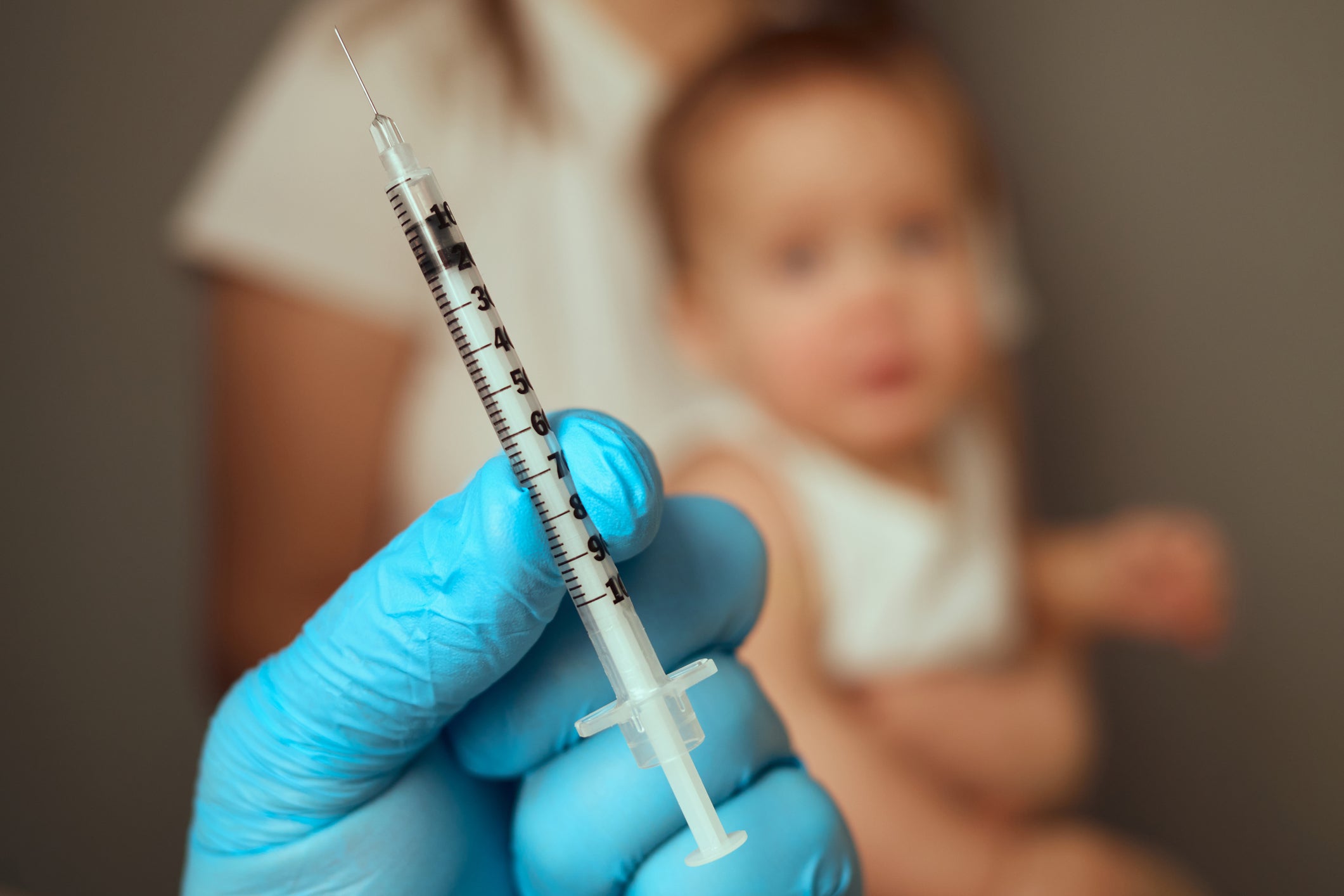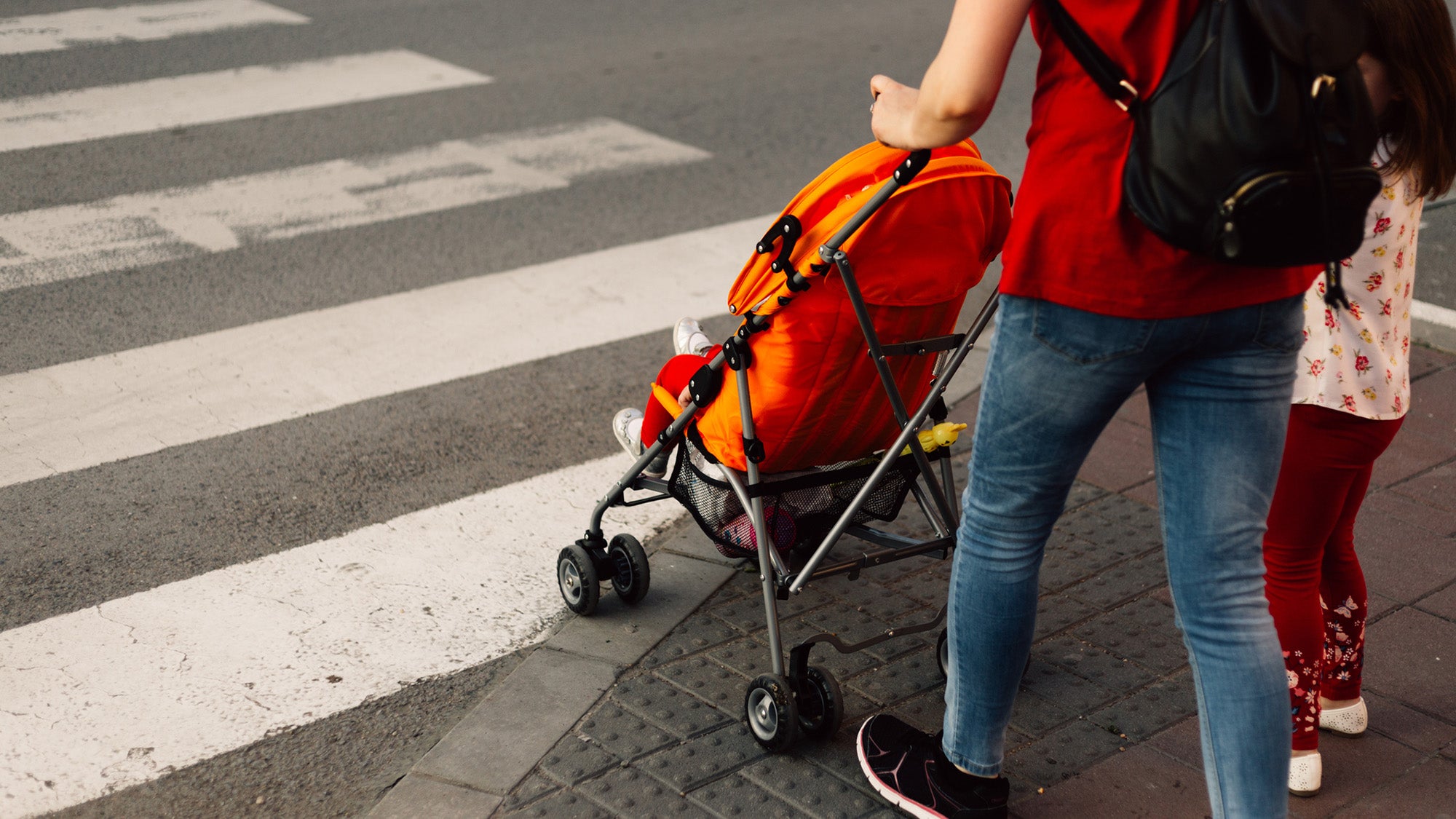We’re better off when we stop pandemics before they start

When Aaron (Ari) Bernstein met his first pediatric patient infected with COVID-19, he realized that this little girl’s health was connected to an infected bat on the other side of the world. Climate change and deforestation have made it easier for new pathogens to spread across the globe. On this episode of Better Off, Ari Bernstein explains how protecting the environment could also secure the future of our own species.
Guest: Aaron (Ari) Bernstein, Interim Director of The Center for Climate, Health and the Global Environment (Harvard Chan C-CHANGE).
More about climate and health
Episode Transcript
Anna Fisher-Pinkert: From the Harvard T.H. Chan School of Public Health – this is Better Off, a podcast about the biggest public health problems we face today . . .
Aaron (Ari) Bernstein: Burning fossil fuels creates air pollution. That air pollution causes a whole suite of diseases we don’t want from lung cancer, strokes, heart attacks, asthma
Anna Fisher-Pinkert: . . . and the people innovating to create public health solutions.
Ari Bernstein: So if we get off fossil fuels and make less air pollution, we’re going to address climate change, and we’re going to be more resilient to an infectious disease like coronavirus.
Anna Fisher-Pinkert: I’m your host, Anna Fisher-Pinkert.
Last spring, I found a dead possum in my backyard. I’m a city girl, and I was totally unprepared for this situation. I called a friend who helped me dispose of it. My first thought, because of the pandemic, was infectious disease. How did I know whether the possum had been sick? How did I know if it could pass that disease to me?
This week, a lot of Americans are looking back on March of 2020, and thinking about how much their lives have changed in a year. But if we want to look back at the seeds of this pandemic, we have to go back to the late fall of 2019, when a bat in China, infected with SARS-CoV-2, came into contact with a human being.
Almost since the beginning of this pandemic, people have had ideas about how to stop the next one. But one answer is to rethink humans’ interactions with the natural world.
So keep your cool, cause this week we are better off with Ari Bernstein, climate and health expert.
Anna Fisher-Pinkert: Ari Bernstein is the interim director of Harvard Chan C-CHANGE (that’s the Center for Climate Health in the Global Environment at the Harvard Chan School). He’s also a practicing pediatrician. And he has a unique vantage point on the connection between the environment and health. It’s a connection he made as he encountered his first pediatric COVID-19 patient last year.
Ari Bernstein: I’m about as far away from a Hollywood movie star as I think any person on the planet. But there have been a few times in my career where I felt like I was walking on the scene of a movie. One of them was the first time I walked into the room of a child who we were pretty suspicious, had coronavirus. And this is in the very early days of the outbreak when we didn’t really have testing available, so we were sort of guessing. And I’m putting on all of this garb, which makes me look like an alien. And I’m walking into the room of a young girl who, understandably, is a little bit apprehensive about a person that she’s never met wearing, you know, alien costume, coming towards her with a group of people. And it’s hard enough to make friendships with seven-year-olds when you’re a tall, bald guy, but then you dress up like an alien and it makes things harder. So that was that was sort of surreal.
And eventually, you know, we found a way to, you know, talk to each other. And I was starting an exam. And I remember as I put the stethoscope to her chest and was listening for her heart, that if she had coronavirus, this whole connection to her was really connecting me to a bat somewhere probably in China, because the virus that she might have been infected with, would have traveled from some bat population in Asia through human beings around the world. And so the whole thing was like being in a movie.
Anna Fisher-Pinkert: But the virus itself is only a part of the problem. Bernstein says that air pollution from burning of fossil fuels makes getting a respiratory infection like COVID-19 even more dangerous.
Ari Bernstein: We know that the source of climate change, 80% of our problem is burning fossil fuels. Burning fossil fuels make carbon dioxide, carbon dioxide is one of the main gases that’s driving climate change. Burning fossil fuels creates air pollution. That air pollution, we have evidence, causes a whole suite of diseases we don’t want from lung cancer, strokes, heart attacks, asthma; affects birth outcomes; is bad for our brains; probably contributes to diabetes. . . But there’s also abundant evidence that that air pollution contributes to pneumonias and respiratory infections.
And there’s substantial evidence now that people who have had to breathe more air pollution are much more likely to die from coronavirus. And we know, in the United States, that low income communities, and particularly Black American communities and Latinx communities are breathing worse air quality, more polluted air.
And the fissures that both coronavirus and climate like to exploit are these injustices. So if we get off fossil fuels and make less air pollution, we’re going to address climate change because they’ll be less carbon pollution and we’re going to be more resilient to an infectious disease like coronavirus. By the way, we have influenza epidemics every year and air pollution is really bad for influenza, too. So it’s not just coronavirus.
Because climate change is a long term challenge, we gain, we have so much to gain through climate actions at trying to heal those wounds, so that when other stresses come, pandemics being a good example, we’ll be more resilient.
Anna Fisher-Pinkert: But there’s also a connection between our impact on the environment and the emergence of new diseases.
Ari Bernstein: I talked about fossil fuels, but deforestation. Deforestation probably is 20% of our carbon problem. And deforestation is also a major driver of infectious disease emergence.
Anna Fisher-Pinkert: Bernstein can’t say whether deforestation contributed to the emergence of COVID-19. But, deforestation has played a role in other infectious disease outbreaks.
Ari Bernstein: We have very good evidence that deforestation was behind the emergence of the 2013 West African Ebola outbreak, as well as many other outbreaks, including Nipah virus in Malaysia and a host of others. In the case of the Ebola outbreak, trees were chopped down further south in Western Africa where bats lived. And because the bats lost their homes, they moved to a new place and that moved the risk of where Ebola can happen. And there are many others. But fundamentally, the good news is that the things we need to do to deal with the major child health challenges we already face: obesity, mental health, diabetes, asthma. The things that that we really need to do there, many of them are exactly the things we need to do to address climate change and help us be more resilient and prevent pandemics as we talked about.
Anna Fisher-Pinkert: You can see this link between the spread of infectious diseases and climate all over the world – even in U.S. Take Lyme disease. The CDC says that the area of the country with a high incidence of Lyme disease is growing and expanding to more and more of the Northeast U.S.
Ari Bernstein: Yeah, we have very strong evidence that climate change is allowing the ticks that transmit the disease to live in places that were too cold. At the same time, we also know that that how we have lived in New England forests has been a major contributor to this. Meaning hundreds and hundreds of years ago, European settlers destroyed all the forests. And the forests we have here today are so-called new growth forests. And then we built our homes in the middle of those forests. The forests happen to have an imbalance in the animals that live in them such that there are no predators left because we’ve killed them all. So you get a lot of mice and a lot of other animals that actually happen to be very good at transmitting Lyme disease. So not all animals where the bacteria resides are equally as good at transmitting the bacteria to ticks. That has nothing to do with climate change. That has everything to do with how we’ve engineered the ecosystem. So you take these ecosystems, you then plop people in the middle of them and shockingly Lyme disease rates go through the roof. And these ecosystems that are prone to Lyme disease are a big part of the equation.
And the reason why this is an important example, because this is what we see with all kinds of infections. We worry about Zika and West Nile virus, dengue fever, in the United States even Eastern equine encephalitis, which is a terrible disease. I’ve had to sadly take care of many children with it. All of those diseases are in play because they’re transmitted by mosquitoes, which are being pushed into new places because of climate change.
Anna Fisher-Pinkert: Mosquitos are moving to different habitats because they prefer living in a certain range of temperatures. And they’re bringing disease with them. If we know that this connection exists between infectious disease and humans’ impact on the environment, it makes sense to stop it at the source.
Ari Bernstein: In public health we have this idea that that the highest calling is primary prevention, meaning we do stuff that keeps diseases from happening in the first place. We don’t get there often.
Primary prevention in the case of pandemics has to do with, one, protecting the habitats that the reservoir species have, the breadth of our species being organisms like bats, which are the hosts of coronavirus, so that they’re not forced to come into more contact with people or that they’re so densely populated that they’re spreading their pathogens among themselves more often. Or, primary prevention is keeping contacts between wild animals and people limited so that we’re not constantly exposing ourselves. And a part of primary prevention is being very on top of where the potential pandemic pathogen may spill over, meaning move from an animal into a person, in various parts of the world, we need to have surveillance.
Coronavirus has been called like the 16-trillion-dollar virus. We spend untold numbers of billions of dollars doing medications and vaccines and diagnostic tests and all of that investment, those billions and billions and billions of dollars is good for one disease. And it’s looking like with the vaccine, we may actually not get as far as we need to go with one vaccine. We may need multiple vaccines. Wouldn’t it be better money spent to prevent these pathogens from spilling over to people in the first place? Preventing deforestation, doing better disease surveillance, providing good medical care to populations at risk where these diseases are going to emerge, so that we prevent all the pathogens from emerging — because there’s nothing written that another coronavirus can’t emerge in the next year.
Anna Fisher Pinkert: There’s a lot of blame on China for not doing enough to observe and surveil wet markets and other sites of contact between humans and wild animals. Where do you see responsibility lying? And who can take that action on a global scale to you know, it sounds like this requires some fieldwork. Someone has to go and test some bats in some actual environments.
Ari Bernstein: Yeah. So so people were testing bats in China and a wonderful collaboration between U.S. researchers and Chinese researchers until the Trump administration pulled the plug on it. And so, there was a recognition that international collaboration was necessary here, and my hope is that, and I actually believe that this is going to happen, is that those kind of programs are going to be up and running again. Who actually is well positioned to do something about this? Well, that turns out to be an important question, because it turns out we have an organization dedicated to human health that’s global, which is the WHO. We have an organization dedicated to livestock health, which is the OIE, which is focused on livestock primarily because people don’t want diseases of livestock transmitted across borders because it’s such an economic risk. We have organizations focused on wildlife conservation. but there is no organization focused on this issue. And so we wrote a piece this summer published in Science saying we actually need to address this head on. We absolutely must have either within the existing organizations or within a new entity, the capacity to drive global cooperation around disease emergence.
Anna Fisher-Pinkert: Of course, a program like this needs money. But Bernstein thinks we need to balance those costs against the losses we suffer when infectious diseases are able to spread.
Ari Bernstein: We need to do is we need to put a value on these events. So we we in our work have done that. We’ve shown that the world is spending at a minimum 50 billion dollars a year in direct economic losses on emerging infections that have happened over the last 70 years. This is just emerging viruses, I should be clear. But the the death toll from emerging infections, so the value of the lives lost every year, and this includes things like HIV and SARS and MERS and Nipah and all these, is at a minimum, a half a trillion dollars every year. So the stake that we can put in the ground is to say, look, policymakers, you think it’s expensive to do what’s necessary to do these primary prevention actions, but you’re already losing as a dead weight loss to society, half a trillion dollars or more a year. And oh, by the way, just to put this in context, the the Global Fund to fight HIV, TB and malaria, which is an enormously important program, very successful in its ability to deal these diseases, raises and its funding rounds over 10 billion dollars. The total budget for preventing deforestation in the world every year is about two billion dollars. Right, so two billion dollars to prevent to get at one of the root causes of disease emergence, versus TB, HIV, malaria, three diseases of immense importance, getting 10 billion dollars in one fell swoop.
Anna Fisher-Pinkert: For Bernstein, the future prevention of pandemics and other human health disasters comes from responsible decision making today. He thinks in order to do that, we need to change how we talk about saving the environment. We shouldn’t do it just because nature is beautiful, or because biodiversity is good – but because there’s a lot in it for us. . . We need to save the environment for human beings to survive.
Ari Bernstein: Almost 15 years ago, I coauthored a book with Eric Chivian, who was a one of the founders of the International Physicians for the Prevention of Nuclear War, which shared a Nobel Peace Prize. The book was called Sustaining Life. And it was it was a comprehensive look at how human health directly depends on biodiversity or the variety of life on Earth. And at the time, there had been some interest in the area, mostly on the reliance of humans upon nature for medicines. But there hadn’t been a sort of holistic look at this issue. And what was interesting to me when that got published was the sort of blowback we got from the folks who would write how dare you suggest we should conserve nature for human interest? Because, of course, if we did that, we’d design nature to our own ends. And nature has a right to exist of its own accord.
But it’s also important to make the connections directly to individual welfare because otherwise, when push comes to shove and in this past year and a half, push has very much come to shove with COVID. We should not expect us to get behind saving the whales, protecting the blue earth when we can’t put bread on the table. And so whether you’re talking about the climate conversation and people saying, well, how are we going to make climate progress when there’s COVID, well, we have to focus on the arguments that are going to be on the kitchen table so that when the next bump in the road comes, climate doesn’t get side rails. So, too, with these broader issues.
And I’m sorry to say that in the climate movement in particular, we talk about co-benefits as the health benefits that come from climate action. Think about that for a second. That’s essentially saying the benefits that I was talking about with like less air pollution, and all the health effects air pollution makes, are the ones that are less important. The real benefit is the taking the carbon out of the atmosphere. Now, from an objective look, yes, the stakes from unmitigated climate change are truly awful and civilization-changing. But that’s not going to happen today. What’s going to happen today is a child is going to go to a playground and the air at that playground is going to be so polluted that they’re going to wind up in my emergency room because they can’t breathe. So we need to really think about that point, Anna, and figure out how we can make the climate communication plan, the planetary health communication plan, not just about the long term, we have to do that, but we have to put what matters now first. And I think that’s an important shift that we are starting to see.
Anna Fisher-Pinkert: Bernstein sees that change happening across the country, from Boston to California, through legislative efforts to curb carbon emissions and encourage investment in renewable energy.
Ari Bernstein: The perhaps the best news I see is that the smart money in the world and this is where it’s critical because where there’s money to be made, things happen quickly. You see smart money investing in the solutions to climate change. And so whether it is in the financial markets and investment firms, whether it’s in businesses investing in renewable technologies, battery technology, food systems, so how we get carbon out of our food system, people are putting huge amounts of money. My concern for the welfare of our country is not just that we have so much on the table for the health of our people, of our children when it comes to climate action. We talked about the things that I wish I could do as a pediatrician to keep our children healthy, which I can’t prescribe with a pen, are exactly the things that I would want to do for climate change, namely the dietary things, the exercise things, the air quality things.
Thing that that that makes me concerned is that if we don’t get our minds around how important climate action is, all this economic opportunity is going to go someplace else. Right. So all the jobs, all the innovation, the biggest opportunities of our lifetimes in terms of economic growth are going to land in other countries and that’s going to leave us behind. So, you know, it is absolutely urgent that we move the next step to really showing the economic opportunities, the health opportunities, the ways to climate actions can promote equity and heal these fissures that can really form the found the cracks that crises like COVID and climate extremes, course through. And so my hope is that, and our center is certainly working on, building that base of understanding through the science that that is coming out of the Chan School and around the world.
Anna Fisher-Pinkert: After talking to Ari Bernstein, I look at my backyard a little differently. Instead of nature encroaching on my home, I can see how my neighborhood has, over the centuries, encroached on nature. And I’m aware of the ways that a changing environment – one where the planet is warming, pollution is mounting, and habitats are disappearing, will determine my own health in the future.
That’s all for this week. Subscribe to Better Off in your favorite podcast app to get episodes every other Wednesday. If you like the show so far, rate and review us – and tell your friends about the podcast, too.
You can find us on Twitter and Instagram @HarvardChanSPH.
We’re better off with our team:
Chief Communications Officer: Todd Datz
Senior Digital Designer: Ben Wallace
Production Assistant: Brian Le
Our editor for this episode was Mary Dooe
I’m Anna Fisher-Pinkert, host and producer of Better Off, a podcast of the Harvard T.H. Chan School of Public Health.


